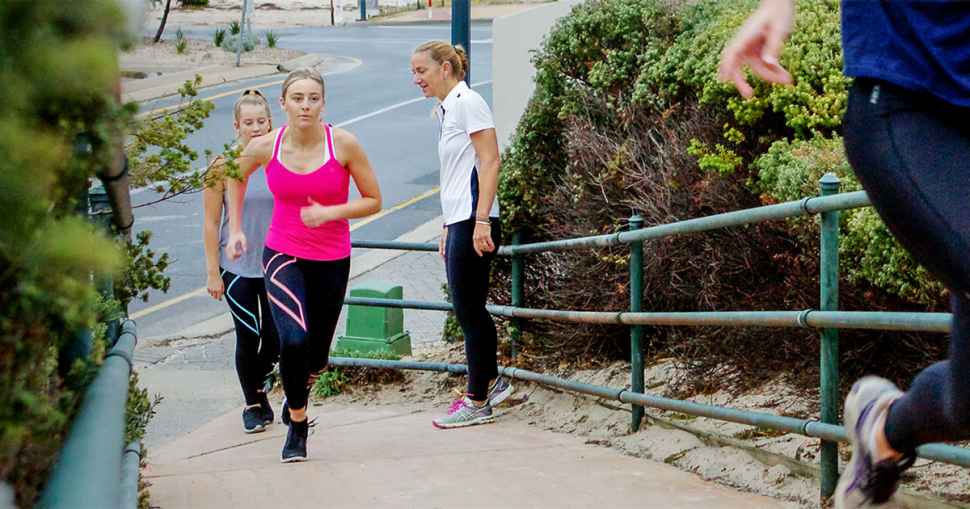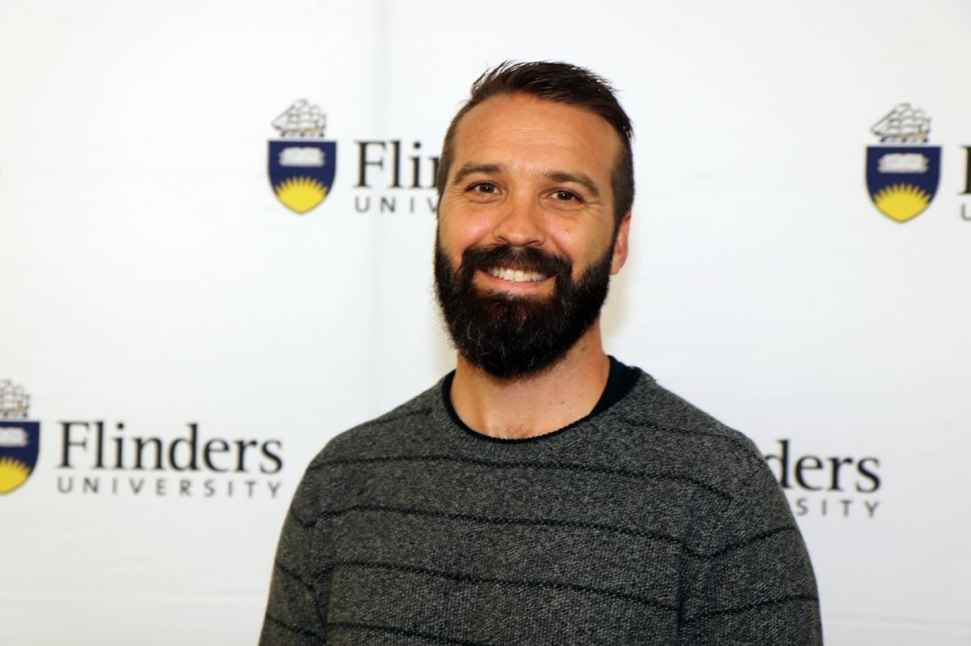Join a fast-growing sector applying exercise to chronic disease management, treatment, and prevention as well as the maximisation of sporting performance and community health.
What does a career in exercise science look like?
Using evidence-based science, Exercise Scientists and Exercise Physiologists have a deep understanding of community nutrition, how the human body works, how exercise can work into sporting performance, prevention, and therapeutic purposes. Exercise Scientists and Physiologists use exercise as medicine helping people with goal setting for lifestyle and mental health management.
With growing clinical guidelines around the use of exercise for health and wellness and management of chronic diseases in the community, this presents exciting opportunities for a rewarding multidisciplinary career.
Employment growth

Australian Jobs 2019
Potential occupations
- Exercise scientist
- Exercise physiologist
- Health and injury prevention advisor
- Aged care health and wellness
- Health and wellness coordinator
- Cardiac technician
- Sport and exercise science support officer
- Active living project officer
As a clinical exercise physiologist, opportunities could also include:
- Rehabilitation/allied health work
- Private practice Acute care
- Day-care rehabilitation
- Home-care rehabilitation
Potential employers
- Hospitals
- Community health units
- Workplaces
- Gymnasiums
- Aged care facilities
- Disability service organisations
- Sporting clubs and associations
- Private health clinics
- Return to work providers
- Schools, universities and TAFE sporting academies
- Not-for-profit or community organisations
This program is accredited by Exercise and Sports Science Australia. Graduates are eligible to apply to be recognised as Accredited Exercise Physiologists and Accredited Exercise Scientists.




Caitlin Keith, Bachelor of Exercise Science graduate
“
It was a huge honour to be offered my current role in rehabilitation of paediatric brain injuries after a Flinders work placement. I don't think I will ever stop applying the things I learnt at Flinders as every person I work with is different and each needs a unique approach – rehabilitation is not one size fits all!”
Why study Exercise Science at Flinders?
Flinders enjoys partnerships with a number of exceptional organisations such as Southern Cross Care, Surf Lifesaving SA, Strength for Life, Australian Athletics Centre, Parkinson’s SA, Flinders Medical Centre, SA Panthers and Basketball SA.
Teaching staff are members of Exercise and Sports Science Australia (ESSA) and work closely with them to promote awareness of the profession.
More than 140 hours of work placement are built into the Exercise Science degree with rewarding industry opportunities both domestically and internationally. We also offer a placement within the aged care sector. Our program in Vanuatu connects our students with unique learning opportunities to broaden their horizons.
Over 360 hours of placement are offered in the Exercise Physiology Masters program where you can work with leaders in chronic health conditions and within our own on-campus community health clinic, Health2Go.
Learn from strength and conditioning professionals from organisations such as the Adelaide, Port Adelaide and GWS Giants AFL clubs, Adelaide Thunderbirds, Basketball SA and the Australian Institute of Sport at the Adelaide Athletic Development Conference.
Masters students can also apply for a summer research program at Western Colorado University.
Flinders offers state-of-the-art facilities and equipment with Cardiopulmonary Exercise Testing (CPET) and exercise strength testing embedded throughout the degrees.
We have our very own purpose-built interprofessional clinic, Health2Go, on site at our Sturt campus, giving you the opportunity to work with clients alongside professional clinicians to gain real-life experience in a modern multidisciplinary environment.
Our graduates have an excellent understanding of holistic health management and are well-equipped to deliver client-centred care.
Interprofessional training is embedded in our Exercise Science and Exercise Physiology courses with experts from other health professions forming an integral component of our teaching staff.
Flinders graduates have an excellent reputation within industry.
Smaller cohort teaching ensures a personal approach to learning and the relationships we have with our students and graduates are highly supportive and long-lasting.
Learn full-time or part-time with the Master of Clinical Exercise Physiology.
Many of our teaching staff are also active researchers and members of Flinders University’s Caring Futures Institute.
This course also aims to equip graduates with the skills required to inform an evidence-based approach to research and practice.
Get inspired

Exercise is medicine
We know it’s good for us, but how far do the benefits of physical activity go?
EXPLORE
OTHER CAREERS
IN HEALTH

Academic Lead: Associate Professor Claire Drummond
Claire is a researcher in the areas of physical activity, exercise and sports science and in the area of gender and physical activity. Claire works with athletes conducting a range of fitness tests and has strong ties with Surf Life-Saving SA and their High Performance Surf Program.

Undergraduate and Postgraduate Course Coordinator: Dr Joyce Ramos
Joyce is a Lecturer in Exercise Science and Clinical Exercise Physiology at Flinders University, and an Honorary Research Fellow at The University of Queensland. Her main research area involves understanding the role of exercise in the prevention, treatment, and management of metabolic syndrome, a collection of conditions that increases a person’s risk of heart disease, stroke and other neurological disorders.

Placement Education Coordinator: Nathan Chesterfield
An Accredited Exercise Physiologist, Nathan has interests in coaching, teaching and mentoring young people, and believes exercise provides a holistic medium in driving personal and academic excellence.
Frequently asked questions
No, although we do recommend students undertake biology in Year 12.
Yes! Exercise Science and Exercise Physiology is a fast-growing sector. With growing clinical guidelines around the use of exercise for health and wellness as well as management of chronic diseases in the community, this presents exciting opportunities.
Opportunities exist in hospitals, community health units, workplaces, gymnasiums, aged care facilities, private health clinics, schools and not-for-profit organisations.
Yes, you may study the Bachelor of Exercise Science part time over 6 years. In the double degree the Bachelor component is part time. However, a Master’s degree must be studied full time.
Once you have completed a minimum of 18 units, you may apply for a higher degree transfer via SATAC for the Bachelor of Exercise Science combined with the Master of Clinical Exercise Physiology (BEXS/MCEP).
Yes. It is possible to change your specialisation within the first year of study. Changes to specialisation depend on the specialised area where you are up to. This can be discussed with the course coordinator.
Yes you will undertake a compulsory 140-hour placement practicum, preparing you with interdisciplinary skills and knowledge of health, sport and exercise frameworks.
The current pandemic situation (COVID-19) will affect many aspects of your study, from topic availability on campus to how your classes are delivered. For detailed information about the impact of COVID-19 on your study please refer to the Coronavirus (COVID-19) information page.
- Applications are completed via SATAC
- Visit: satac.edu.au/
There are a range of alternative ways to gain entry to most undergraduate courses besides meeting the minimum required ATAR. Details of other pathways can be found at: flinders.edu.au/study/pathways
These include:
- Doing the uniTEST, an aptitude test designed to assess the generic reasoning and thinking skills you need to be successful in university level studies. As a year 12 student you can use uniTEST results in combination with your ATAR to increase your opportunity to gain entry into any of our courses, with the exception of the Bachelor of Clinical Science/Doctor of Medicine.
- You can apply through SATAC to sit the Special Tertiary Admissions Test (STAT), held in June.
- You can also consider applying for courses with lower requirements, as many courses will allow you to transfer once you have completed a specified amount of the course. This is done through Flinderslink. If you accept an offer at another university, and perform well, you can use your grade point average (GPA) to transfer to Flinders University. You may even be eligible for credit.
- Aboriginal and Torres Strait Islander applicants can gain admission to Flinders University through the Indigenous Admissions Scheme flinders.edu.au/study/pathways/indigenous-admissions-scheme
I am an
International Student
Australia or New Zealand.
I am a
Domestic Student
I'm an Australian Permanent Resident
(including Humanitarian Visa holders).
![]()
Sturt Rd, Bedford Park
South Australia 5042
South Australia | Northern Territory
Global | Online


